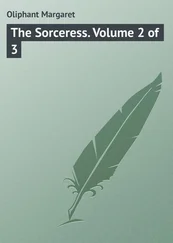Margaret Oliphant - At His Gates. Volume 2
Здесь есть возможность читать онлайн «Margaret Oliphant - At His Gates. Volume 2» — ознакомительный отрывок электронной книги совершенно бесплатно, а после прочтения отрывка купить полную версию. В некоторых случаях можно слушать аудио, скачать через торрент в формате fb2 и присутствует краткое содержание. ISBN: , Жанр: foreign_prose, на английском языке. Описание произведения, (предисловие) а так же отзывы посетителей доступны на портале библиотеки ЛибКат.
- Название:At His Gates. Volume 2
- Автор:
- Жанр:
- Год:неизвестен
- ISBN:http://www.gutenberg.org/ebooks/47619
- Рейтинг книги:3 / 5. Голосов: 1
-
Избранное:Добавить в избранное
- Отзывы:
-
Ваша оценка:
- 60
- 1
- 2
- 3
- 4
- 5
At His Gates. Volume 2: краткое содержание, описание и аннотация
Предлагаем к чтению аннотацию, описание, краткое содержание или предисловие (зависит от того, что написал сам автор книги «At His Gates. Volume 2»). Если вы не нашли необходимую информацию о книге — напишите в комментариях, мы постараемся отыскать её.
At His Gates. Volume 2 — читать онлайн ознакомительный отрывок
Ниже представлен текст книги, разбитый по страницам. Система сохранения места последней прочитанной страницы, позволяет с удобством читать онлайн бесплатно книгу «At His Gates. Volume 2», без необходимости каждый раз заново искать на чём Вы остановились. Поставьте закладку, и сможете в любой момент перейти на страницу, на которой закончили чтение.
Интервал:
Закладка:
'I am sure it would have been nice for you too,' she said. 'He would have given you his arm when you were tired, and looked after the luggage, and locked all the doors at nights. The only thing is, it would have been a great expense. When people are poor, I suppose they can't afford to have boys. They want so many things. But yet he would have been nice all the same. I hope he would have had a pretty name; not so short as Ned, and not so common as Charlie. Charlie is the eldest of the Daltons – such a big boy. Oh, I wonder what our boy's name would have been? Do you like Oswald, mamma, or Eustace? Eustace sounds like a priest or something dreadfully wise. I don't like solemn boys. So long as he was big and strong, and not too clever. But oh, dear, dear, what is the use of talking? We never can have a big boy, I suppose? I must be content with other girls' brothers. I shall never have one of my very own.'
'The less you have to do with other girls' brothers the better, Norah,' said Helen, beguiled into a smile.
'I do not care for them, I am sure,' said Norah, with dignity; 'though I don't dislike gentlemen, mamma – quite old gentlemen, like Dr Maurice and Mr Haldane, are very nice. And I should like to have had – Mr Rivers, for instance – for a big brother. I rather think, too, I like Ned Burton better than Clara. It is more natural to hear a boy talk of ponies and things. She never thinks of anything else – dogs, and horses, and carriages, and the fine things she has. It is not polite to talk of such things to people who have not got them. I told her I did not care for ponies, nor grapes, nor hot-house flowers; and that I would rather live in London than at the House. And, oh, so many – stories, mamma! Is it wrong to tell a little fib when you don't mean any harm? Just a little one, when people boast and make themselves disagreeable – and when you don't mean any harm?'
'It is always wrong to tell fibs; and I don't know the difference between big ones and little ones,' said Helen.
'Oh, mamma, but I do! A big story is – for instance. If I were to say Susan had stolen your watch, that would be a wicked lie. But when I say I don't care for grapes, and would not like to have a pony, it isn't quite true, but then it makes Clara be quiet, and does nobody any harm. I am sure there is a great difference. It would be very nice to have a pony, you know. Only think, mamma, to go cantering away across the common and on the turf! But I would not give in to say that I should like to be Clara, or that she was better off than me!'
Norah's casuistry silenced her mother. She shook her head, but she did not say anything. Something of the same feeling was, indeed, in her own mind. She, too, would have liked to be contemptuous of the luxuries which her neighbours dangled before her eyes. And Norah resumed her monologue. The mother only partially heard it, waking up now and then to give the necessary response, but carrying on all the time her own separate thread of cogitation, which would not shape itself into words. The old parlour, with its brown-grey curtains and all its spindle-legged furniture, enclosed and seemed to watch the human creatures who disturbed the silence. A room which has been long unoccupied, and which is too large for its new inhabitants, has often this spectator look. The pictures looked down from the walls and watched; up in the little round mirror two people in a miniature interior, who were in reality reflections of the two below, but looked quite different, glanced down upon them, and watched also. The sky looked in through the five windows, and the lime-trees in front kept tapping with their branches against the panes to show that they were looking on. All the rest were clandestine, but the lime-trees were honest in their scrutiny. And in the midst of it the mother and daughter led their subdued lives. Norah's voice ran through all like a brook or a bird. Helen was mostly silent, saying little. They had a roof to shelter them, enough of daily bread, the kindness of strangers outside, the rude but sympathetic kindness of Susan within. This was more, a great deal more, than often falls to the lot of human wrecks after a great shipwreck. Norah after a little while accepted it as the natural rule of life, and forgot every other; and Helen was silent, though she did not forget. The silence of the house, however, by times oppressed the child. She lay awake in the great bed-room up-stairs, afraid to go to sleep till her mother should come; and even in the daylight there were moments when Norah was afraid of the ghostly drawing-room, and could not but feel that weird aged women, the Miss Pagets, whom her mother had known, or some of the old Harcourts, were watching her from behind the doors, or from the shade of the curtains. There was a deep china closet beside the fireplace with one particular knot in the wood-work which fascinated Norah, and made her feel that some mysterious eye was gazing at her from within. But all these fancies dispersed the moment Mrs Drummond appeared. There was protection in the soft rustle of her gown, the distant sound of her voice. And so the routine of life – a new routine, but soon firmly established, supporting them as upon props of use and wont, began again. There were the lessons in the morning, and Norah's music, and a long walk in the afternoon; and they went to bed early, glad to be done with life and another day. Or at least Helen was glad to be done with it – not Norah, to whom it was the opening of the story, and to whom once more the sunshine began to look as sweet as ever, and each new morning was a delight.
A few weeks after their arrival the Haldanes followed them. Miss Jane had written beforehand begging for information about the house and the journey; and it was only then that Helen learned, with a mortification she could scarcely overcome, that the Gatehouse was to be their refuge too. This fact so changed the character of her cousin's kindness to her, that her pride was with difficulty subdued to silence; but she had sufficient self-control to say nothing – pride itself coming to her aid.
'Perhaps you would be so good as to send me a line with a few particulars,' Miss Jane wrote. 'I should like to know for myself and mother if there is a good minister of our denomination, and if you would mention the price of meat, and how much you are giving for the best butter, I should be very much obliged. I should like to know if there is a good room on the ground-floor that would do for Stephen, and if we could have a Bath-chair to bring him down from the station, for I am very distrustful of cabs. Also about a charwoman, which is very important. I am active myself and always look after the washing, so that one strong handy woman to come from six in the morning till two would do all I should require.
Mrs Drummond made an effort and answered all these questions, and even walked to the station to see them arrive. It was a mournful sight enough. She stood and looked on with her heart aching, and saw the man whom she had known so different lifted out of the carriage and put into the invalid chair. She saw the look of dumb anguish and humiliation in his eyes which showed how he felt this public exposure of his weakness. He was very patient; he smiled and thanked the people who moved him: yet Helen, with her perceptions quickened by her own suffering, felt the intolerable pain in the other's soul, and went away hurriedly, not to afflict him further by her presence. What had he done? How had this man sinned more than others? All the idlers that lounged about and watched him, were they better or dearer to God than he was? Mrs Drummond was half a Pagan, though she did not know it. She hurried away with a miserable sense that it was past bearing. But Stephen set his lips tight and bore it. He bore the looks of the village people who came out to their doors to look at him as he passed. As for his mother and sister, they scarcely remarked his silence. They were so happy that everything had gone off so well, that he had borne it so easily.
Читать дальшеИнтервал:
Закладка:
Похожие книги на «At His Gates. Volume 2»
Представляем Вашему вниманию похожие книги на «At His Gates. Volume 2» списком для выбора. Мы отобрали схожую по названию и смыслу литературу в надежде предоставить читателям больше вариантов отыскать новые, интересные, ещё непрочитанные произведения.
Обсуждение, отзывы о книге «At His Gates. Volume 2» и просто собственные мнения читателей. Оставьте ваши комментарии, напишите, что Вы думаете о произведении, его смысле или главных героях. Укажите что конкретно понравилось, а что нет, и почему Вы так считаете.












